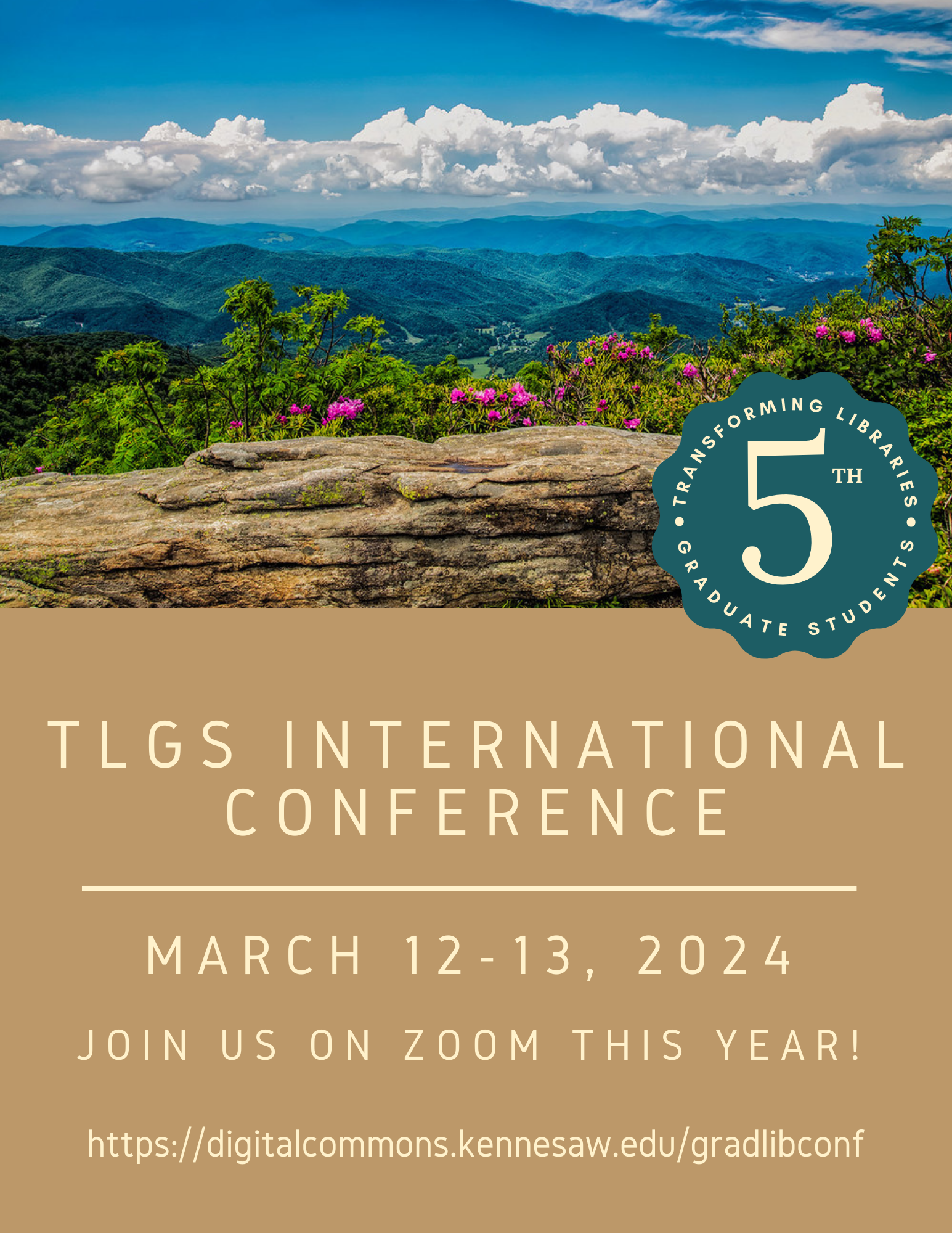Loading...
Start Date
3-13-2024 1:00 PM
End Date
3-13-2024 2:00 PM
Keywords
hidden curriculum, publishing process, graduate students, faculty advisors
Description of Proposal
This presentation will share the results of a survey on what and how graduate students learn about the publishing process at an R1 university. This presentation will build on an earlier poster about our study, called “Making the Publishing Process More Transparent: Identifying a Baseline for Publishing Support through Researching Gaps between Graduate Students and Their Faculty Advisors’ Support,” at Transforming Libraries for Graduate Students (TLGS) 2022 (Stuit 2022). That poster covered our methods, literature review, and research questions. This full-length presentation will cover our findings and takeaways that other librarians may use in their work with graduate students.
Faculty advisors of graduate students have many responsibilities in guiding their advisees to success in their programs, amidst many other demands on their time. On the flip side, graduate students must learn a number of skills and processes that are not covered explicitly in the curriculum. Learning this “hidden curriculum” happens inconsistently across the student body depending on what topics come up in conversation between students and advisors, what departmental or campus events/workshops that students have time to attend, and what their peers and experts in the field share with them. The hidden curriculum contains topics that students have to figure out as they go without formal support structures. Furthermore, there are calls to professionalize the university with more specialized training (Hayes 2023).
This presentation will illustrate how the lack of training on how to publish disadvantages students, particularly first generation and minoritized scholars, and prevents students from optimizing their publishing efforts since they are learning as they go. We will cover when students start publishing (which is early), what students report that the expectations for publishing are, what guidance students receive from their advisors, and how they would like to learn about publishing. These findings indicate that students need more consistent support from the university on publishing. Specifically, when we set out with our research, we thought we would learn what areas that the library can rely on faculty advisors to cover and what gaps for the library to fill. However, we will share what we learned instead, which will also be shared in a forthcoming paper following the TLGS conference.
During the presentation, we will provide interactive opportunities for attendees to help them identify their baseline assumptions about and experiences with graduate student publishing. We will share our methods, findings, and takeaways, as well as any supplemental materials, to provide attendees with actionable approaches to support graduate students with publishing.
Publishing as Hidden Curriculum: How Learning to Publish Is a Piecemeal Process for Graduate Students
This presentation will share the results of a survey on what and how graduate students learn about the publishing process at an R1 university. This presentation will build on an earlier poster about our study, called “Making the Publishing Process More Transparent: Identifying a Baseline for Publishing Support through Researching Gaps between Graduate Students and Their Faculty Advisors’ Support,” at Transforming Libraries for Graduate Students (TLGS) 2022 (Stuit 2022). That poster covered our methods, literature review, and research questions. This full-length presentation will cover our findings and takeaways that other librarians may use in their work with graduate students.
Faculty advisors of graduate students have many responsibilities in guiding their advisees to success in their programs, amidst many other demands on their time. On the flip side, graduate students must learn a number of skills and processes that are not covered explicitly in the curriculum. Learning this “hidden curriculum” happens inconsistently across the student body depending on what topics come up in conversation between students and advisors, what departmental or campus events/workshops that students have time to attend, and what their peers and experts in the field share with them. The hidden curriculum contains topics that students have to figure out as they go without formal support structures. Furthermore, there are calls to professionalize the university with more specialized training (Hayes 2023).
This presentation will illustrate how the lack of training on how to publish disadvantages students, particularly first generation and minoritized scholars, and prevents students from optimizing their publishing efforts since they are learning as they go. We will cover when students start publishing (which is early), what students report that the expectations for publishing are, what guidance students receive from their advisors, and how they would like to learn about publishing. These findings indicate that students need more consistent support from the university on publishing. Specifically, when we set out with our research, we thought we would learn what areas that the library can rely on faculty advisors to cover and what gaps for the library to fill. However, we will share what we learned instead, which will also be shared in a forthcoming paper following the TLGS conference.
During the presentation, we will provide interactive opportunities for attendees to help them identify their baseline assumptions about and experiences with graduate student publishing. We will share our methods, findings, and takeaways, as well as any supplemental materials, to provide attendees with actionable approaches to support graduate students with publishing.



What takeaways will attendees learn from your session?